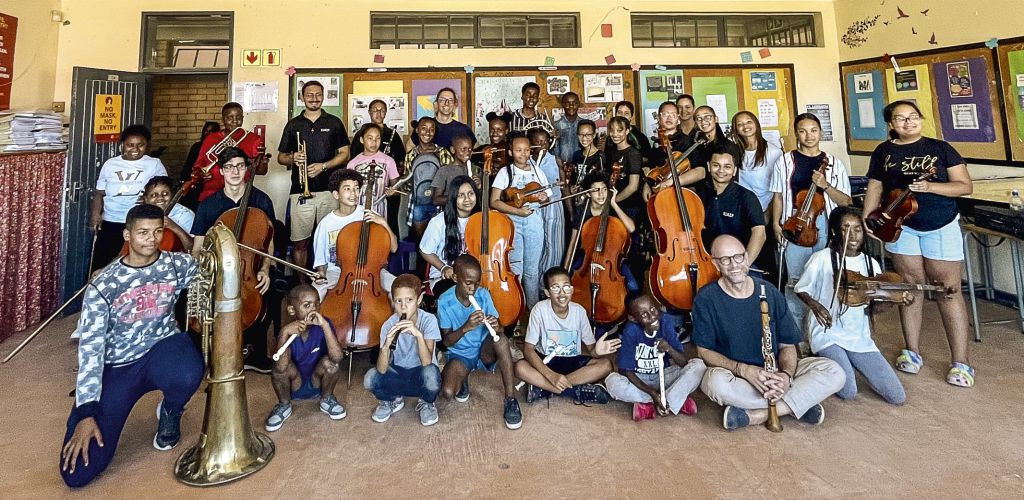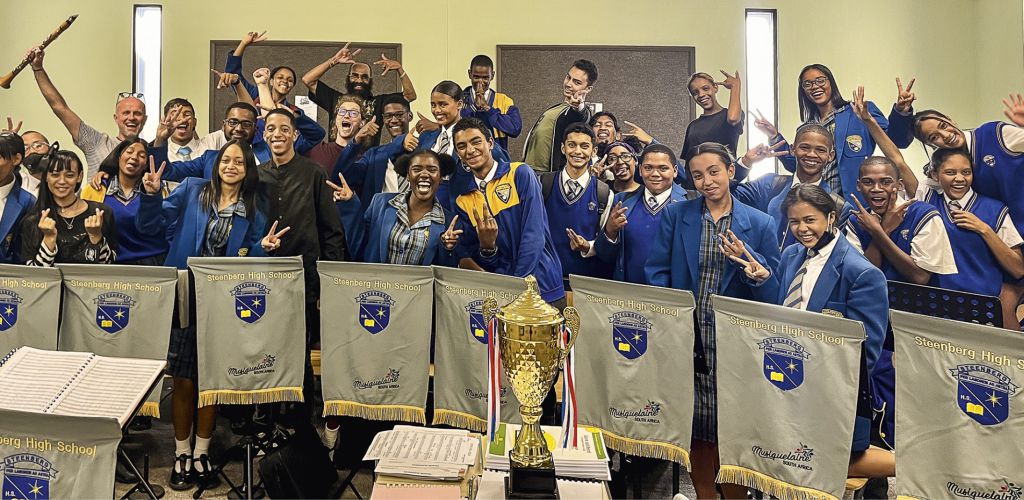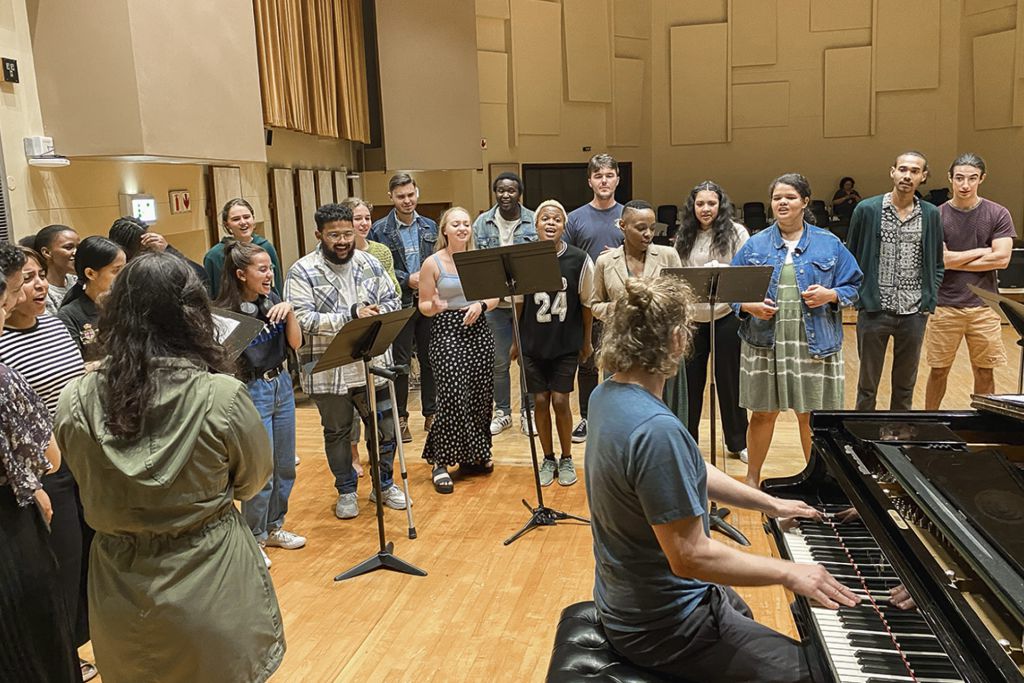“Who no know go know”: this title of a song by the legendary Nigerian musician Fela Kuti serves as the motto of a project first realised in South Africa by the mdw faculty members Rupert Fankhauser and Philipp Sageder. Unlocking new perspectives on music and engaging in dialogue are the two emphases of their work with students of Stellenbosch University and with children and adolescents in schools. Extending across all of this is the infectious enthusiasm for music-making that exists in South Africa, an enthusiasm in which both teachers have been privileged to partake.

Rupert Fankhauser spent the 1993/94 season as a member of the Cape Town Symphony Orchestra and has since maintained his connections in South Africa. He later teamed up with Philipp Sageder to develop the project “musicEmotion”, with which they were first hosted by the university and by schools in the southwestern South African town of Stellenbosch in 2019. The resulting positive resonance made it possible for them to pay a renewed visit to South Africa in February 2023. “With ‘musicEmotion’, we’re seeking to unite motion, emotion, and musical expressivity,” explains Fankhauser. The idea is to go beyond the usual master class format and teach not only selected university students but also young talents from outside academic circles. In their project, the two take advantage of the fact that they cover different stylistic areas: Fankhauser is a clarinettist and hence from a classical performance background, while Sageder hails from singing and popular music. Both view team teaching as a source of huge added value for educators, since this enables them to learn a lot from each other. “Team teaching is the countermodel to a masterclass. Our work is colourful in a stylistic sense, with ensembles instead of individuals and with musicians of differing levels,” explains Sageder.
The Department of Music at Stellenbosch University attempts to recruit future students by way of an enthusiastically pursued outreach programme at township schools in the interest of becoming more inclusive and diverse. “We worked very practically together with the young musicians on improvisations, on hearing and listening,” says Sageder of his sessions with the school students. “The kids are very enthusiastic and approach music in a free way. Many of them sing regularly in choirs and at church services, meaning that they’re already very capable singers,” Fankhauser adds.

At Stellenbosch University, whose study offerings are strongly oriented toward performance degree programmes, the mdw teachers engaged in exchange with the students concerning the status of teaching. “Successful musicians can work as educators with just as much success. We’ve got a huge amount of didactic expertise at the mdw, so we’re capable of conveying a whole lot in that regard,” emphasises Sageder. Another intended avenue of exchange here is mobility. Teaching faculty from Stellenbosch University have already visited the mdw, and student mobility—in both directions—is slated to follow. “South Africa is an unbelievably beautiful country with great potential, and it’s home to numerous initiatives in the educational realm. But even so, not much has improved for the country’s poorest,” holds Fankhauser. There continue to be racially segregated residential areas as a consequence of apartheid policies, as well as extremely dangerous regions with high crime rates.
“It’s with great humility that I return from a trip like this and tell students about my experiences. It’s important for teachers to repeatedly venture into new terrain so that they realise what it means to engage with music for the first time and to stand at the very beginning,” Fankhauser is convinced. “In this project, our intent is to be constantly asking questions—after all, there are so many things to be learned and so many ways of viewing music. So the goal here is to get away from automatisms and open up new fields of play,” adds Sageder. In professional musical training, both consider it essential to not only encourage specialisation and cultivate the idea of excellence but also equip students with well-rounded skills when it comes to carrying their music out into society and breaking down barriers.

The two teachers are bringing this project to more places than just South Africa, and in doing so, they find it important to be active outside of Western cultural metropolises. This september hence saw them and the project visit Colombia, likewise with the idea of involving as many musicians as possible across multiple genres. And in February 2024, Fankhauser and Sageder intend to return to South Africa and further expand their project and network by South Africa’s great musical richness—in keeping with the motto: “Who no know go know”.

